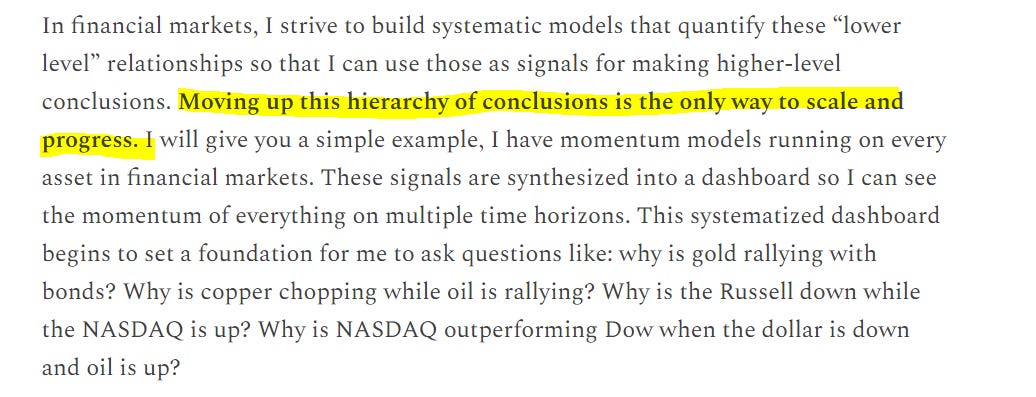Time Lags and Decision Making
How do time lags in high risk situations distort peoples view of reality?
We have an interesting topic today, connecting optimal decision-making with the mental game since we have an ES short on.
The Mental Side:
The main things I want to focus on in this article are decision-making during time lags and when inaction is optimal.
This really applies to any area of life, but the best analogy is asking someone out on a date. Let's say you text someone asking them out and then you wait for their reply. There is a dreaded time lag between your text and their reply. During this time lag, when you don't have certainty regarding the outcome, it is incredibly easy to act irrationally.
You might think, "I texted this person an hour ago and they haven't responded! What if my text was not clear? What if they think I'm crazy? What if I read the situation all wrong?"
Then, suboptimal decision-making begins to creep in: maybe I should send a follow-up text, maybe I should call them, maybe XYZ...
Your mind then begins to take every possible outcome based on your inaction and extrapolate it to an extreme.
Connecting it to Trading and Life
Everyone knows this experience of asking someone out, but for some reason, we don't connect it to other domains of life, such as business deals or trading. What's even more difficult is that during time lags, additional information can present itself that might make inaction a suboptimal decision.
So we have a bit of a dilemma: how do we switch back and forth between action and inaction for optimal decisions based on the information that exists in the current moment?
Like many things, there is an art and a science to it. When there is an art and a science to something, generally this means you need to come up with a clear way to know and systematize the "science" side. You then can use this system to learn the art side via trial and error in experience.
For example, I currently have a short ES position that I have shared. There have been several intraday counter-trend rallies that have caused small drawdowns in this position. How do I know when to take a gain or take a loss? Or how do I know if this is the counter-trend rally that takes back all my profits?
These questions and scenarios exist in every domain of life and are very real. The level you actually want to get to is getting so good at your own execution and process that you can begin to think about taking advantage of other people's suboptimal emotional decisions when they exhibit impatience or greed.
How to think about this:
There are several ways I would break this down and think about it:
First, identify all knowns and unknowns. This means clearly identifying the things you DON'T know. Mentally, this is one of the hardest things for people to do because listing the number of things you don't know really brings your own limitations to the forefront of your risk-taking. However, when you correctly identify the things you don't know, you have a clearer picture of the things you would definitely need to know for action or inaction.
Second, systematize as much as possible: When I talk about a lot of these principles, in reality, you want to systematize as much as possible so that your intuition can be informed with the clearest and most high-quality information. For example, with the ES trade, I have very clear models running that monitor a number of variables from momentum and volatility to capitulation and squeezes.
Third, always have a plan to change your mind: When you switch between action and inaction, you simply want a plan to moderate between either of these as new information comes to light or as things become less certain. If you have extreme preparation, these scenarios become less mentally difficult because you are partially expecting various outcomes.
A lot of these principles and ideas are based on specific scenarios where there is BOTH a human and machine element. There is a reason financial markets are not purely algorithm-based machines. There is still an individual on the other side of that algorithm turning it on and off.
If you want some great resources on this, there are two books I would recommend:
The Origin Of Wealth has a great section on time lags in complex systems. This section was incredibly influential in my own thinking and models.
The Tao Of Trading by Simon Ree has a chapter called “Why Trading Is Like Sex” going over a lot of these ideas. Simon is a really good guy and he recently did an interview on Blockworks that can be found here: link.
Final Thought:
The final thing I would say is that you can always systematize more than you think. I mentioned this in the "Weekend Research" article.
You want to continually systematize and have a foundation to move to higher-level decisions. Building systems and models correctly directly connects with your ability to push yourself mentally.
Thanks for reading!




Thanks man! Super helpful. I have wondered how to form models. Is this like a Python kind of model or something else entirely?
How did you begin to structure your thoughts on what you needed?